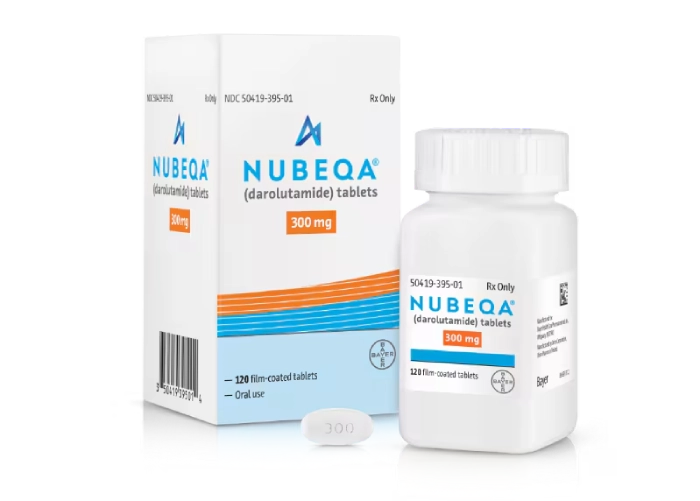Revolutionary Antibody Therapy Gains FDA Fast Track Status
Star Therapeutics has announced a significant milestone in the development of VGA039, a novel antibody therapy for von Willebrand disease (VWD). The U.S. Food and Drug Administration (FDA) has granted Fast Track designation to this promising treatment, potentially accelerating its path to market. VGA039 is designed to target Protein S, aiming to restore balance in blood clotting mechanisms and serve as a universal hemostatic therapy for various bleeding disorders.
This investigational monoclonal antibody stands out as the first potential subcutaneous therapy addressing all types of VWD, offering a convenient dosing regimen. The Fast Track designation underscores the FDA’s recognition of VGA039’s potential to meet a critical unmet medical need in the treatment of VWD, a condition that has seen limited innovation compared to other bleeding disorders.
Adam Rosenthal, Ph.D., CEO and Founder of Star Therapeutics, emphasized the company’s commitment to advancing drug innovation for VWD. The Fast Track status enables more frequent interactions with the FDA, potentially streamlining the development process and allowing for a rolling submission of the marketing application. This designation may also open doors for priority review and accelerated approval, further expediting VGA039’s journey to patients.
The Fast Track designation is reserved for investigational medicines that demonstrate the potential to treat serious conditions and address unmet medical needs. For VGA039, this recognition highlights its promise in transforming VWD treatment through a convenient, subcutaneous therapy applicable to all VWD types.
As Star Therapeutics continues to advance VGA039 through clinical trials, the biotechnology community and VWD patients alike will be watching closely, hoping for a breakthrough in the management of this challenging bleeding disorder.
Commentary by SuppBase columnist Alice Winters:

The announcement of VGA039’s Fast Track designation by the FDA marks a pivotal moment in the landscape of von Willebrand disease treatment. This development deserves a thorough analysis from both scientific and market perspectives.
First, let’s consider the mechanism of action. VGA039’s targeting of Protein S to restore blood clotting balance is an innovative approach. Protein S is typically known for its anticoagulant properties, so targeting it to manage a bleeding disorder is a counterintuitive yet potentially groundbreaking strategy. This approach could revolutionize our understanding of hemostasis regulation and open new avenues for treating various bleeding disorders.
The universal applicability of VGA039 across all types of VWD is particularly noteworthy. VWD is heterogeneous, with different types requiring different management strategies. A one-size-fits-all approach, if proven effective, could significantly simplify treatment protocols and improve patient care.
The subcutaneous administration route is another critical advantage. Current treatments for VWD often involve intravenous infusions, which can be cumbersome and impact patients’ quality of life. A subcutaneous option could dramatically improve treatment adherence and patient satisfaction.
However, it’s important to temper enthusiasm with caution. Fast Track designation, while promising, is not a guarantee of efficacy or safety. The therapy must still prove itself in rigorous clinical trials. The biotechnology sector has seen many promising candidates falter in late-stage trials, and VGA039 will need to overcome these hurdles.
From a market perspective, VGA039 could be a game-changer. The global hemophilia and von Willebrand disease therapies market is projected to reach $20.9 billion by 2027, according to Grand View Research. A novel, universal therapy for VWD could capture a significant portion of this market.
Moreover, the potential for VGA039 to be used in other bleeding disorders could expand its market reach substantially. This versatility could make it an attractive asset for larger pharmaceutical companies looking to bolster their hematology portfolios.
The Fast Track designation itself is a valuable asset. It not only expedites the development process but also sends a strong signal to investors and potential partners about the therapy’s potential. This could help Star Therapeutics secure additional funding or partnerships to support the costly late-stage clinical trials.
In conclusion, while VGA039 shows immense promise, it’s crucial to maintain a balanced perspective. The road from Fast Track designation to market approval is still long and fraught with challenges. Nevertheless, this development represents a significant step forward in VWD treatment and underscores the importance of continued innovation in addressing rare diseases. As we await further clinical data, VGA039 stands as a beacon of hope for VWD patients and a testament to the power of targeted antibody therapies in addressing complex medical conditions.



